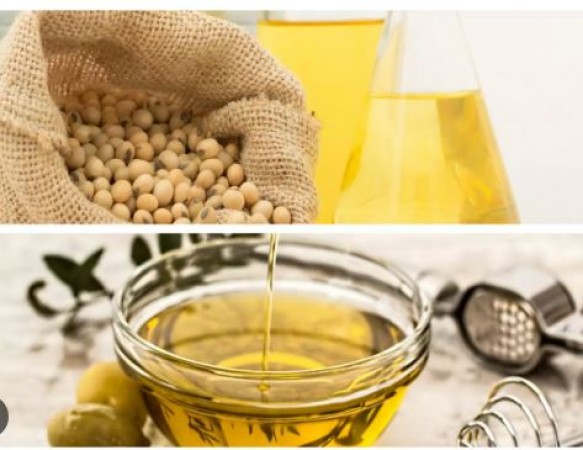
Cooking oils are more than mere kitchen essentials; they are integral components of a healthy lifestyle. In this exploration, we will dissect the health benefits and considerations associated with three prominent oils: soybean, peanut, and sunflower.
Soybean oil stands as a nutritional powerhouse, celebrated for its heart-friendly attributes and versatile culinary applications.
Soybean oil takes center stage with its remarkable omega-3 fatty acid content. These essential fats play a pivotal role in cardiovascular health, reducing the risk of heart disease. The alpha-linolenic acid (ALA) in soybean oil contributes to maintaining optimal cholesterol levels, further fortifying its heart-protective qualities.
Beyond its health benefits, soybean oil's mild flavor and high smoke point make it a versatile cooking companion. It seamlessly integrates into various dishes, enhancing the overall culinary experience without overpowering the natural taste of the ingredients.
Soybean oil's nutritional profile extends beyond its healthy fat content. Rich in vitamin K, crucial for blood clotting and bone health, and vitamin E, a potent antioxidant, it becomes a holistic addition to the diet, supporting overall well-being.
Peanut oil emerges as a culinary favorite, known for its distinctive flavor and diverse applications in cooking.
One of the hallmarks of peanut oil is its unique nutty taste. This distinct flavor profile makes it a preferred choice for those seeking to elevate the taste of their dishes, adding a delightful depth that complements various cuisines.
Peanut oil's high smoke point is a game-changer in the kitchen. This attribute makes it ideal for high-temperature cooking methods like frying and sautéing, ensuring that the oil maintains its nutritional integrity and doesn't break down under heat.
Monounsaturated fats, found abundantly in peanut oil, are known for their heart-protective properties. Regular consumption of these fats helps lower bad cholesterol levels, reducing the risk of cardiovascular diseases and promoting overall cardiovascular health.
Sunflower oil, with its light and neutral taste, emerges as a healthful choice, contributing to overall well-being.
Sunflower oil's subtle flavor makes it an excellent choice for those who prefer a milder influence on their dishes. This characteristic allows the natural flavors of the ingredients to shine, making it adaptable to a wide range of culinary creations.
A balanced composition of polyunsaturated and monounsaturated fats sets sunflower oil apart. This balance contributes to heart health, providing the body with the right mix of fats that are essential for various physiological functions.
Sunflower oil is not just a source of healthy fats; it's also enriched with vitamin E. This antioxidant vitamin plays a crucial role in promoting healthy skin, fighting oxidative stress within the body, and supporting the immune system.
Choosing the right cooking oil involves aligning your selection with your dietary goals. If your aim is to increase omega-3 intake, soybean oil becomes a go-to option. On the other hand, if you're looking to enhance specific cuisines with a nutty flavor, peanut oil might be the ideal choice.
The cooking techniques you employ can influence your oil selection. For high-temperature cooking methods like frying, the high smoke point of peanut oil is advantageous, ensuring that the oil remains stable and doesn't undergo detrimental changes during the cooking process. Conversely, the versatility of sunflower oil makes it suitable for a wide range of preparations.
While each oil brings its unique set of health benefits, moderation remains a universal principle. Even the healthiest oils should be used judiciously to maintain a balanced diet. Excessive consumption of any oil can lead to an imbalance of nutrients and contribute to unwanted health issues.
In the grand symphony of culinary oils, each—soybean, peanut, and sunflower—brings its unique notes to the table. Your choice should align with your health goals, taste preferences, and culinary requirements. In the end, the healthiest oil is the one that fits seamlessly into your lifestyle, contributing not only to your well-being but also to the symphony of flavors in your kitchen. As you embark on your culinary journey, consider the health benefits, flavor profiles, and cooking applications of soybean, peanut, and sunflower oils to make informed and health-conscious choices.
Here is a Way to Protect Your Health: Know The Health Benefits of Black Catechu
Include These Flowers in Your Diet: Not Just Leaves, But Also Edible Flowers!
Even Smelling One of These Leaves Gives Relief from Mental Problems: Know Who is it?